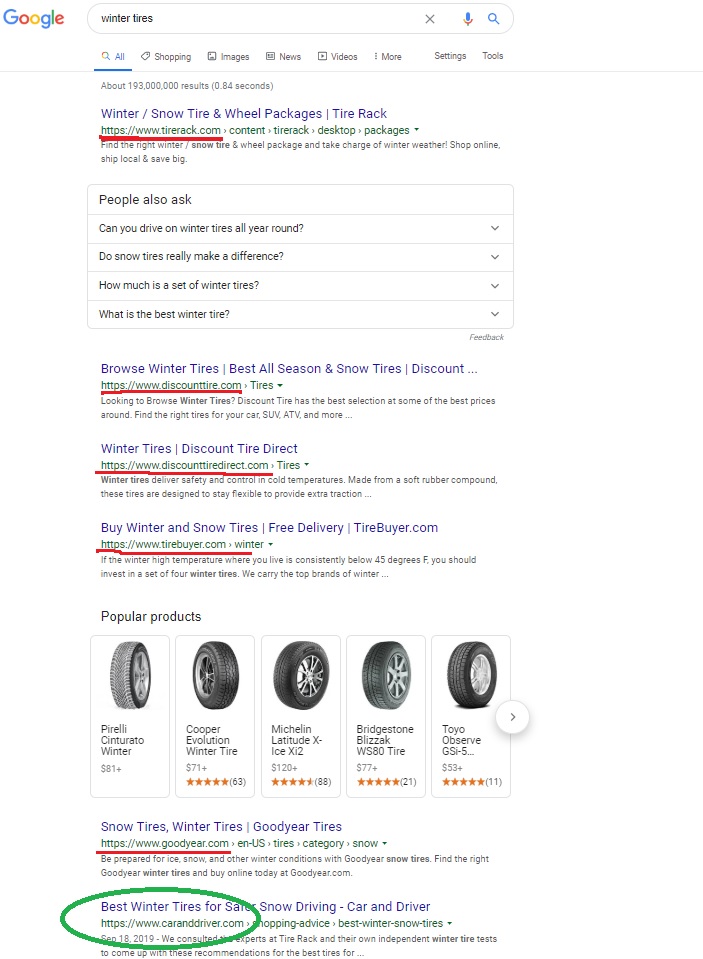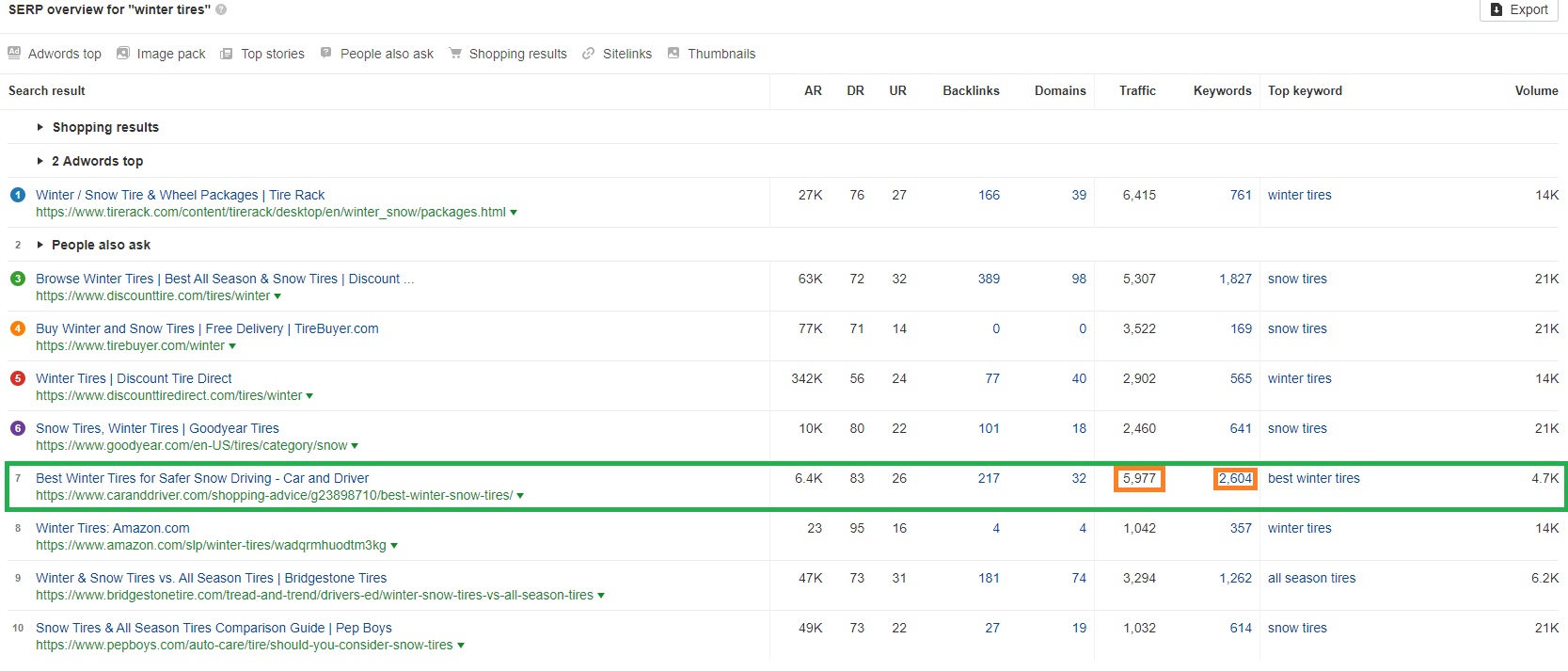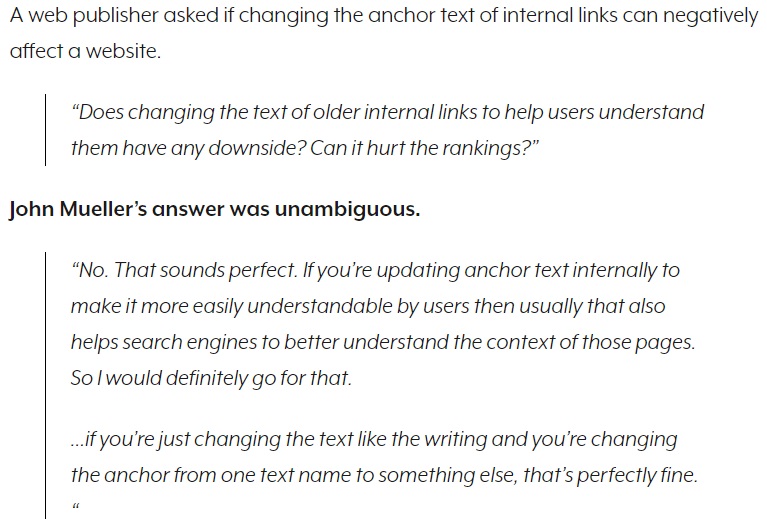Topical Relevance and Topical Authority in SEO

Matei Nicolae
Senior Digital Specialist
There is a bit of confusion about the difference between topical authority and topical relevance and, in this post, our Senior Digital Specialist Matei Nicolae will try to shed some light on this topic and help you improve both relevance and authority.
What is topical authority?
Topical authority is about how well your site covers a particular area or topic. I will use the example below to actually explain what this means for SEO.
Let’s say you have a website about cars and you want to rank with a page about winter tires. This makes complete sense since winter tires are vital for safety during winter.
You can have an amazing page about winter tires but it will be highly unlikely that you will manage to overrank sites that are dedicated to tires since they are considered authorities when it comes to tires and this is what all their content is focused on.
In the image below you have a snippet of the results for “winter tires” in the US. As you can see the top 5 results are from sites that are dedicated to tires. The first website that approaches the broader topic of cars comes in 6th position.

What does this mean? Well, it means that you need to become more topically authoritative if you want to rank for such competitive terms which brings us to the most important question: How do you become topically authoritative?
How to gain topical authority
To become a topical authority you need to identify all the relevant keywords around your topic and create a cluster or a silo where you have all the content that is relevant for that topic. Following on the example above, let’s see if that position 6 is worth fighting for:

By looking at the numbers here, you can see that this article is getting (according to Ahrefs) about 6000 clicks/month, but these 6000 clicks come from over 2600 keywords that it’s ranking for.
Is the number of keywords they are ranking for the secret behind ranking for such a competitive term even if they are as niche as the other results?
I would say no.
The secret for them ranking there lays in the fact that they have a folder dedicated to tires: https://www.caranddriver.com/tires/. Knowing this, let’s see how they compare when we look at the overall tire niche:
They are ranking for 28,192 keywords containing the word “tire”.

What about the top 5 results above them?
#1 – 44,025 keywords after removing the brand.

#2 – 55,576 keywords after removing the brand.

#3 – 14,225 keywords after removing the brand.

#4 – 29,405 keywords after removing the brand.

#5 – 62,056

The main takeaways to have topical authority:
- Write original, high-quality content based on keyword research.
- Build supporting articles, create clusters/silos. Don’t limit yourself to your targeted keyword.
Plan your editorial strategy around this. Do you want to write about tires? Do keyword research, group keywords based on intent, and create the articles as soon as possible, don’t spread them out over time (this applies to evergreen content) - Build topically relevant links to your articles.
What is topical relevance?
Topical relevance or link relevance is when the links to your content are from sites that are relevant to your niche. For those that are new to SEO this might sound confusing and you might ask:
“What do you mean that the sites linking to my content determine if my content is relevant or not for the topic?”.
Let me explain.
When search engines rank pages for different queries they do it based on a very complex algorithm. It is said that Google for example has about 200 factors (there is no official list of all the factors).
One ranking factor that is confirmed and tests shows is that backlinks are extremely important. Backlinks are like endorsements, the more you have the better you will be seen. As endorsements, backlinks are valuable if they are given by others that are active in that field, and the stronger the authority of the site linking to you, the stronger your page will become and will rank better.
Following the example above with the “winter tires”, what would be some examples of pages linking to a site, and do they really help in increasing the rankings:
- https://www.motorbiscuit.com/consumer-reports-says-these-are-the-best-and-worst-truck-snow-tires/ — this is spot on – it’s an industry outlet so they have authority in the field which makes their link highly valuable
- https://carsoid.com/are-michelin-tires-good-in-the-snow/ — even if this link is from a lower quality site, it’s still from a site that is within the industry so it’s more valuable than links from generic sites.
- https://www.readersdigest.co.uk/lifestyle/home-garden/how-to-protect-your-car-this-winter — this is from readersdigest. You would think it’s valuable but considering the fact that it is in the home-garden section of the site and they don’t really have any content around car tires on other articles its relevance is on the low end. It’s not useless, just low impact.
Is topical relevance determined only by external links?
Is there more to topical relevance than the backlinks?
Yes, there is!
- Topical relevance can be boosted through internal links. The more internal links you have pointing to a page, the more important it will become.
We have performed tests on this and according to the results, the impact on visibility is big.
 You can see once the homepage link is added, there is a growing trend developing. As soon as we removed the link in mid March, the visibility went down and never recovered. We added an internal link to this page in September on a relevant category page and as you see it picked up almost immediately.
You can see once the homepage link is added, there is a growing trend developing. As soon as we removed the link in mid March, the visibility went down and never recovered. We added an internal link to this page in September on a relevant category page and as you see it picked up almost immediately.
- Descriptive anchor text (the text under which the link is placed) is also important. Google’s John Muller said on one of the hangouts he has with webmasters that updating internal links to give them more relevant anchors helps search engines better understand what the content under that link is about.

This applies also to external links – the more specific the anchor is, the more value the link will pass so it’s worth reaching out to sites that link to you in a natural way and see if you can have them update the anchor links.
VERY IMPORTANT: Do not try to manipulate rankings by buying links or using sites that you have control of to build links to your pages, this is against Google guidelines and could result in a penalty.
I hope that this makes it more clear what the difference is between topical authority and topical relevance and also helps you with planning the next steps.
Remember: Build content that makes sense for your readers and make sure you are at least at the same level as your main competitors on that topic and once you are happy with the content you produced, start building on the topical relevance by getting links from outlets that are relevant within the industry (topic).


